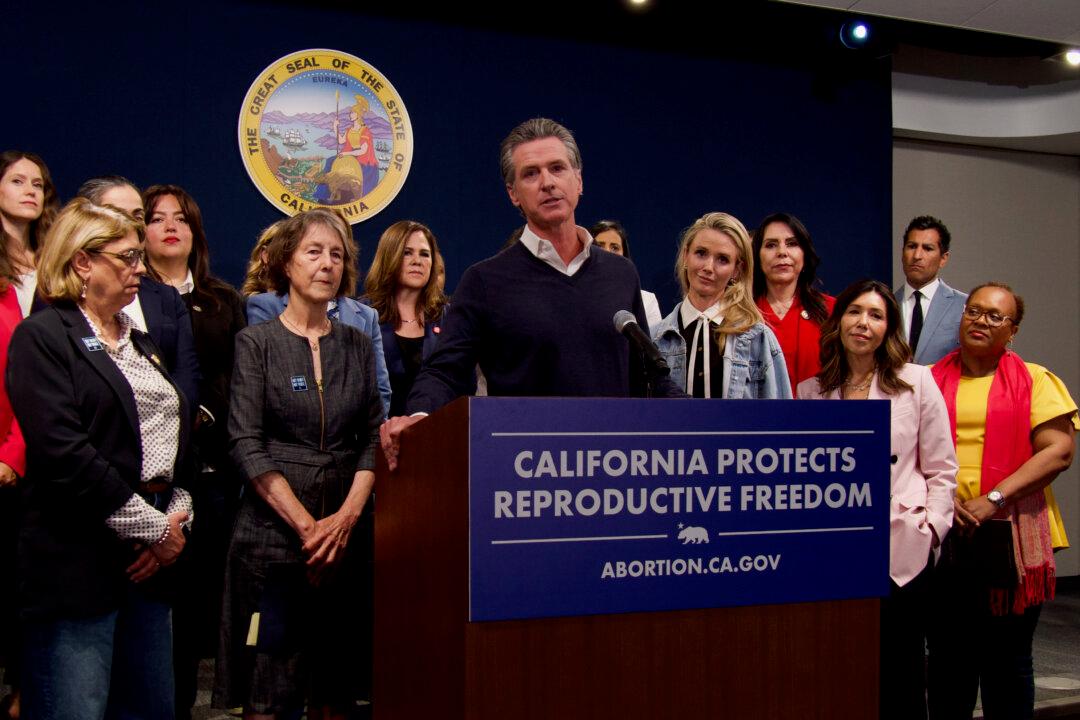SACRAMENTO—California Gov. Gavin Newsom joined the Legislative Women’s Caucus to announce a new bill that would allow licensed doctors in Arizona to provide abortions to their patients while temporarily practicing in California, at a press conference held at the Capitol on April 24.
“If you care about women and girls and their future ... this is just about basic humanity and decency,” Mr. Newsom told The Epoch Times.





